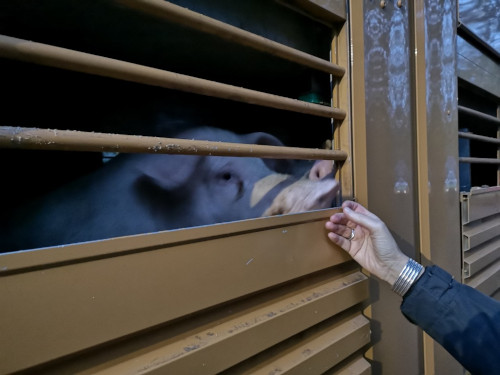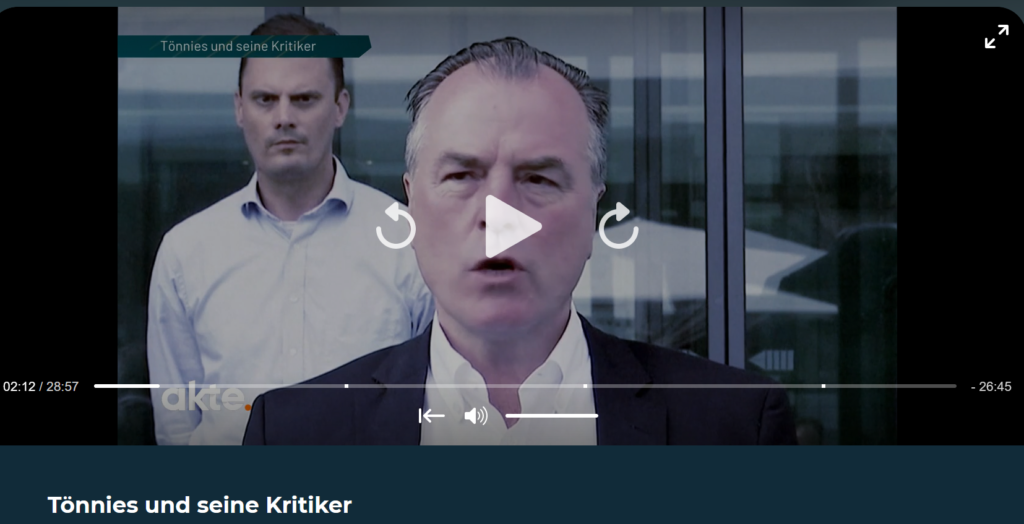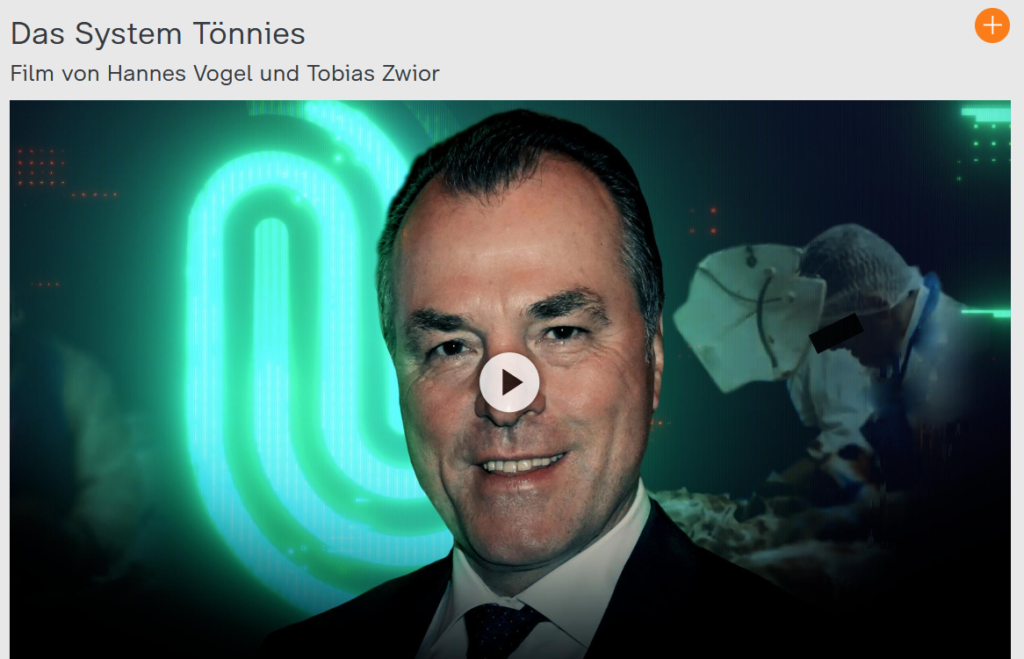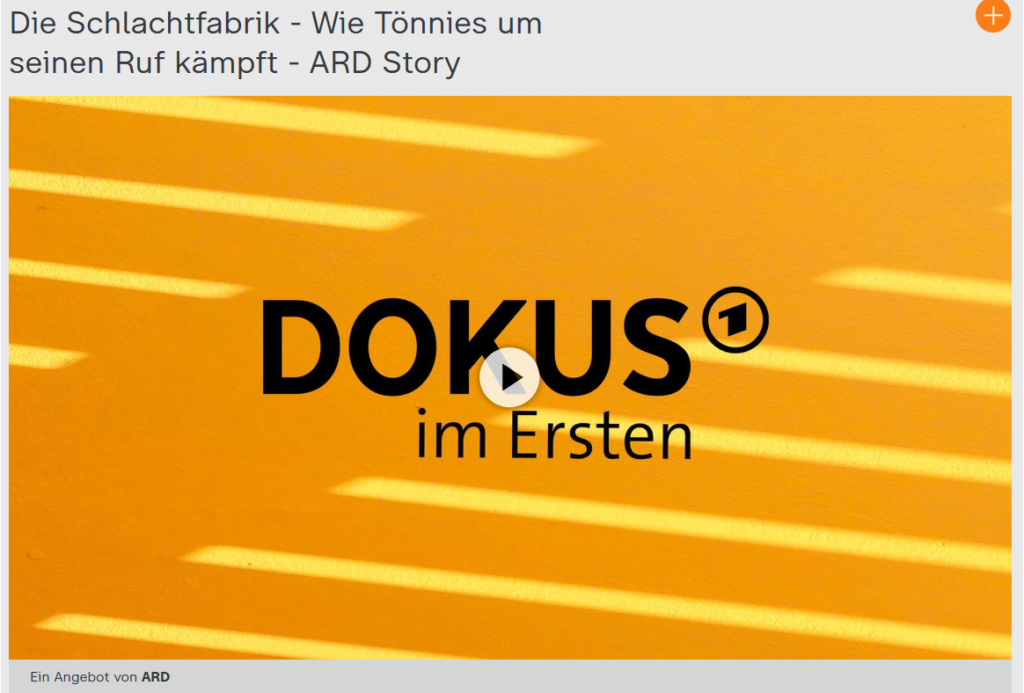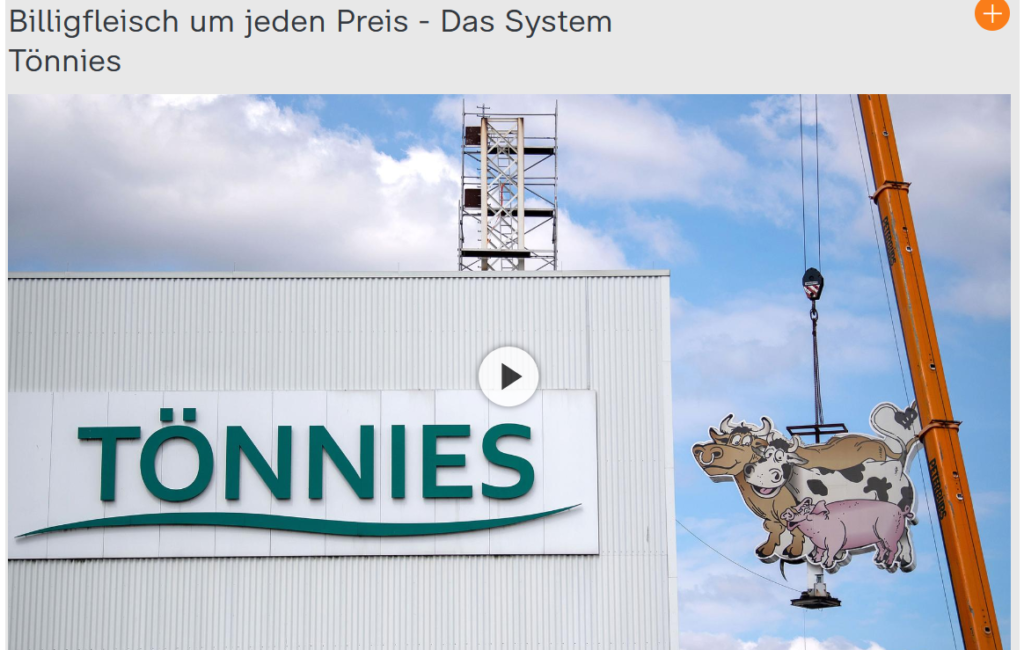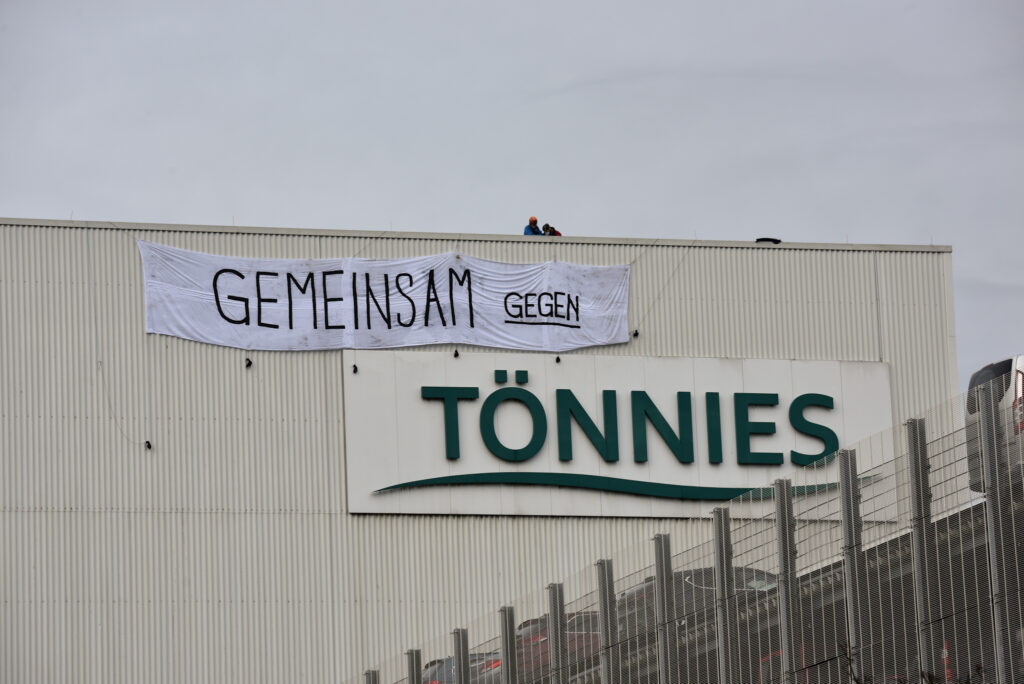
Profile: Tönnies Company
- largest slaughterhouse and largest sausage producer in Germany - one of the world's largest meat companies
- Almost 20,000 employees worldwide - locations in Denmark, Poland, the UK, France and Spain and soon China
- Exports more than half of its products to 82 countries - focus on Asia
- Core business of slaughtering pigs and cattle: 20 million pigs slaughtered annually, 16 million of which in Germany (market leader) and more than 400,000 cattle
- 6.8 billion annual turnover
- Market leader in organic meat
- 2.6 percent of total greenhouse gas emissions in Germany together with the dairy group DMK
Profile: Clemens Tönnies
- 67 years old
- His brother Bernd founded the company and Clemens took over the management after his death in 1994
- fortune of around 1.6 billion US dollars - the richest German meat industrialist and ranked 125th overall.
- owns a villa in Mallorca, a foundation in Liechtenstein, a hotel in Kitzbühel and a 1000-hectare hunting ground in Mecklenburg-Western Pomerania, among other things
- loyal donor to the CDU
- Has handed over 5% of the company to his son and is building him up as his successor; rivalry with his nephew, who owns half of the family business
- Former Chairman of the Supervisory Board of Schalke 04 - calls for resignation after a racist speech in 2020, among other things
Together against Tönnies!
Corona outbreaks, exploitation of workers, animal welfare scandals… these are just a few of the buzzwords used when talking about Germany’s largest meat company: Tönnies Holding, based in Rheda-Wiedenbrück in North Rhine-Westphalia. The company and above all Managing Director Clemens Tönnies, who owns 45% of the company, are raking in huge profits while people, the environment and animals suffer as a result. We say: Stop it!
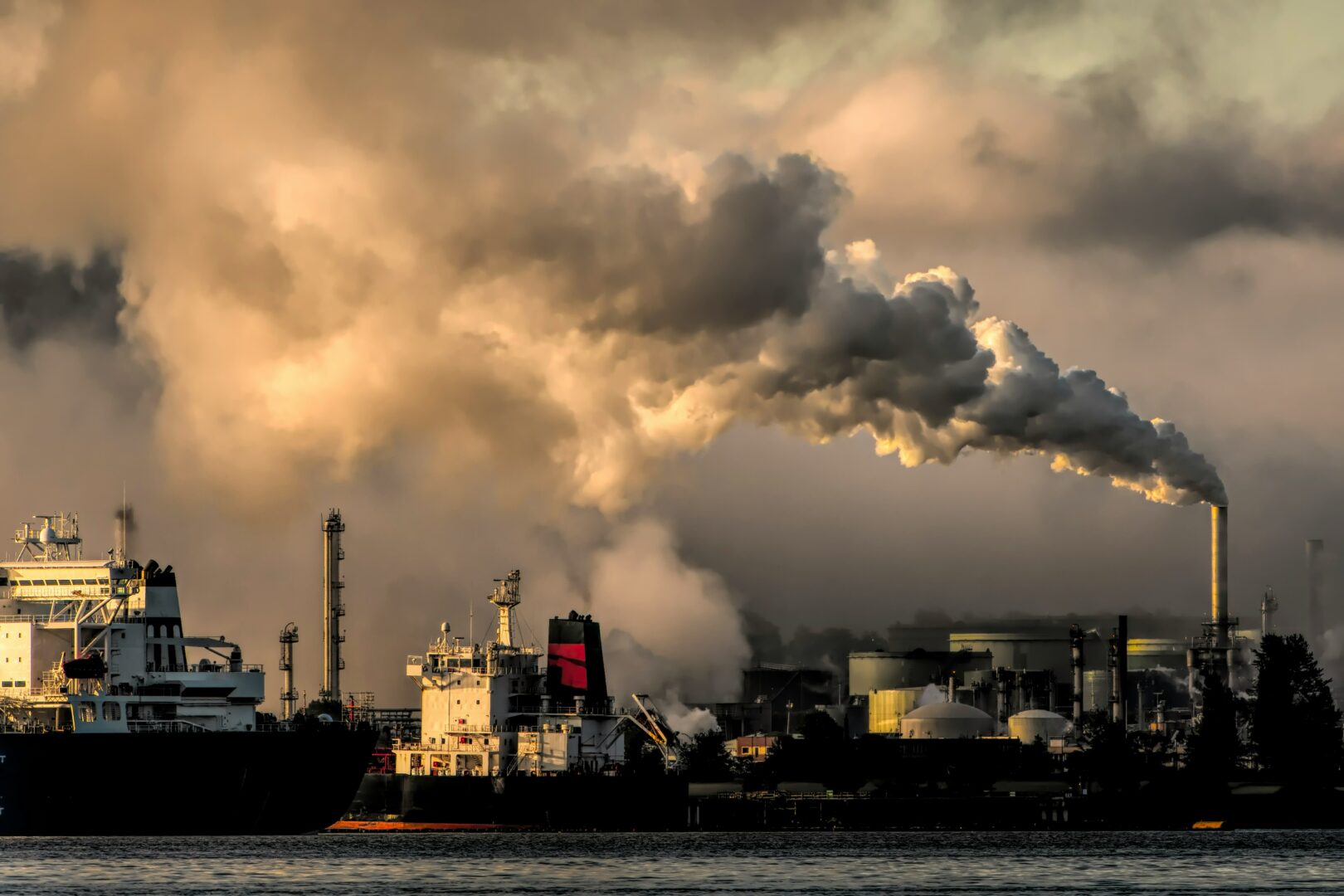
Environmental destruction and climate crisis
Tönnies is partly responsible for environmental destruction and fuels climate change. Valuable land is wasted for the meat industry: Draining peatlands for grazing land and immense acreage for animal feed are just a few examples of this. The large quantities of manure generated by animal production are tipped onto fields. Nitrate levels rise, making the soil less fertile and contaminating the groundwater.
Neo-colonialism
The huge number of animals slaughtered by Tönnies and processed into meat and sausage products can never be fed with local feed crops. Large quantities of feed, such as soy, are imported to feed the pigs and cattle slaughtered at Tönnies, especially from South and Central American countries such as Brazil. There is repeated evidence of illegal deforestation in the Global South in order to produce masses of feed for the animals in the fattening facilities in Europe. This then ends up as cheap meat in our supermarkets. Local economies are destroyed. Indigenous communities are disenfranchised and displaced. People who resist are harassed or murdered. This is how Tönnies profits from neo-colonial dependency structures.
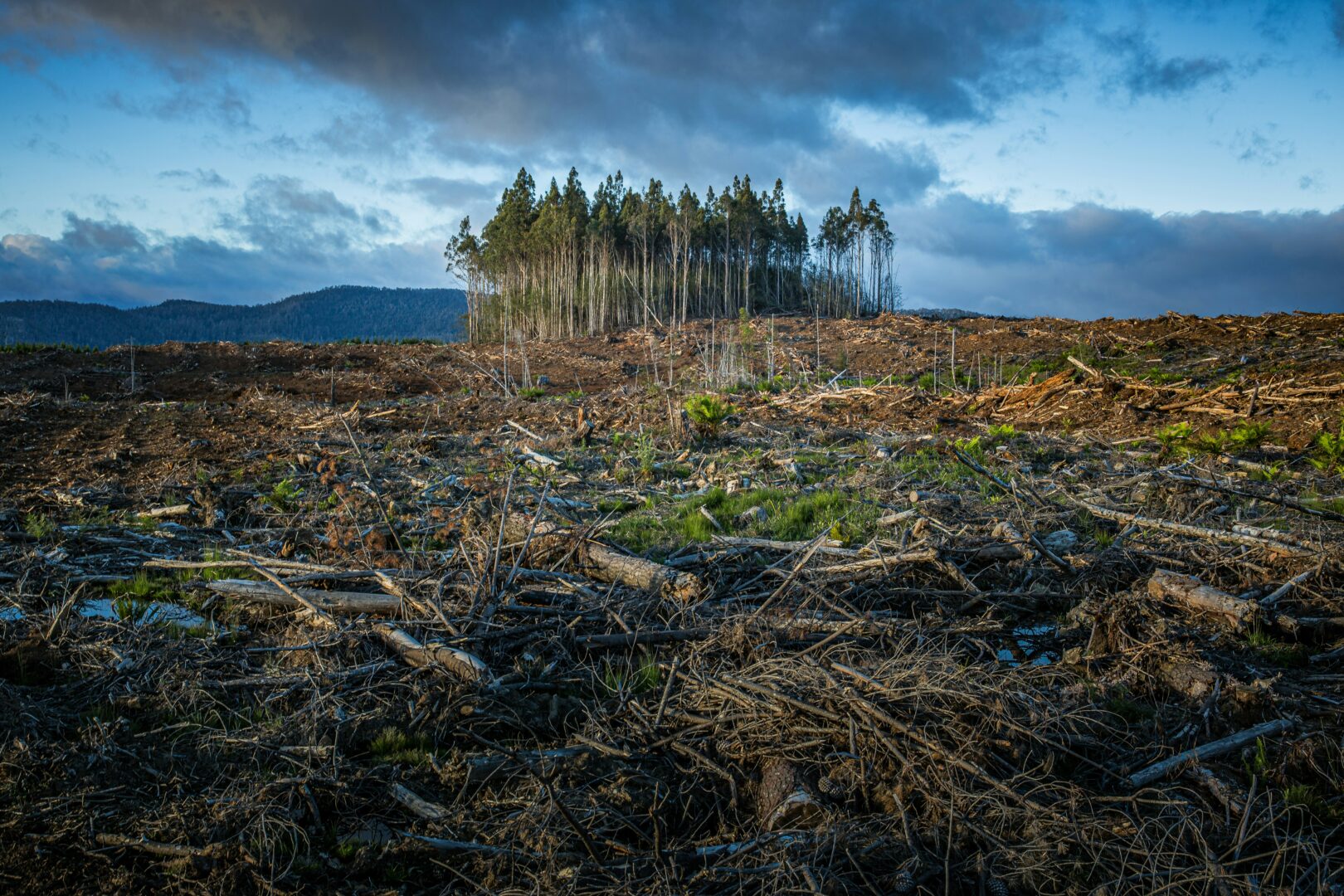
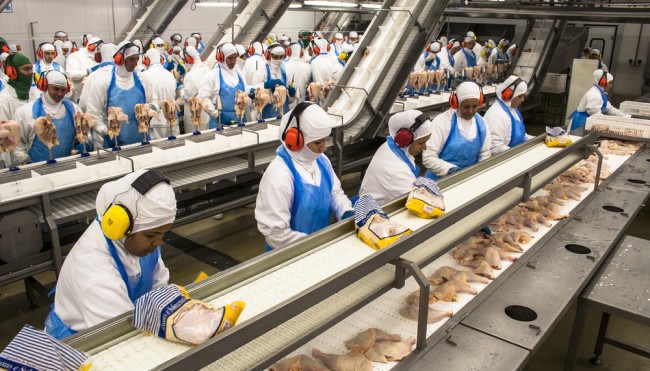
Workers exploitation
With the outbreak of the coronavirus pandemic in Germany in spring 2020, Tönnies became a symbol of the scandalous system of worker exploitation in the meat industry. However, the miserable working and living conditions of employees were criticized long before this: Coldness, time pressure, precarious employment, cramped living conditions and dubious recruitment of workers from Eastern European countries, who are lured out of poverty into dependence on Tönnies and whose rights are trampled underfoot. Despite stricter legislation, the working conditions in the slaughterhouses and cutting plants of the animal industry are anything but acceptable.
Animal exploitation
Last but not least, millions of animals are deprived of their freedom on behalf of Tönnies, kept in torturous conditions, fattened to slaughter weight and then killed at the time of maximum profit. It has long been no secret that the conditions in fattening farms and slaughterhouses are catastrophic for the animals. Time and again, undercover investigations uncover this reality. A brief outcry in the media and everything is forgotten again. As Tönnies largely outsources the business of rearing animals, the responsibility is always shifted to others. It is obvious that these are not isolated cases and that the entire system of the animal industry is based on precisely these untenable conditions.
